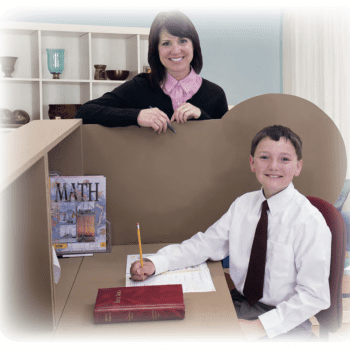Note: I just realized that I never posted the second part of Darcy’s post about peer dependency. Darcy writes about the toxic beliefs held by many Christian homeschool about peer relationships—and the ways in which these beliefs can deprive their children of deep friendships. Darcy speaks as a homeschool graduate, and seeks to shed light on the these groups’ wildly inaccurate beliefs about child development and the pain caused in their wake. You can read part 1 here.

By Darcy. Originally posted on Homeschoolers Anonymous.
Let’s jump right in, shall we?
“The first step in overcoming peer dependency is determining whether or not a child is peer dependent. The second is accurately assessing the depth of the problem and then taking the proper steps. One approach a parent might take in order to find out if a son or daughter is peer dependent is to tell your child that all outside activities with peers will be suspended for one week. Will your child willingly and joyfully go along with that plan, or will they whine and cry, manipulate and control, and completely make your life miserable until they can do things with their friends? ….ask them, ‘Who has your heart? Who would you say in in control of your life?’ ”
So lemme get this straight: tell a normal kid that they have to cease and desist all the normal stuff they do outside the home (keep in mind we’re talking about homeschoolers who rely on their parents to have an outside social life), then when they freak out like normal kids, give them a triumphant “AHA! You are peer dependent. We must fix this.” Um, no, actually, they’re just normal human beings who like the company of other human beings. How would this mother handle it if someone told her “You won’t be allowed out of your house or to see anyone else but your kids for a week. And tell me now, who has your heart”? Sounds abusive and manipulative, right? Oh, but not when it’s directed at kids. Kids can be treated as non-humans because they’re on the bottom of the Godly hierarchy. Suddenly “Who has your heart?” sounds uber creepy to me. All this emphasis on who owns whom.
“Accurately knowing who has each child’s heart will be to the parent’s advantage….many parents have said that they lost the heart of their child as early as 8 years of age. Whatever the age, it is never too early to win the heart of your child, then purpose and plan to keep it.”
In what other context is this type of control OK?? Place this in the context of a husband toward his wife, and you have the set-up for a textbook emotionally abusive marriage. Nowhere does Sears ever think to ask what the child wants.
What the child wants in this paradigm is completely irrelevant.
“A child having an independent social life is a cultural phenomenon that has become an accepted practice in Christian homes, resulting in the decay and impotency of the modern Christian family. Many young people find their lives shipwrecked because they have placed too much emphasis on friends instead of family.”
Here we go again with the family v. friends false dichotomy.
“The lack of purposeful and meaningful relationship between siblings and parents has come to be accepted as normal. Not only do present day trends of divorce, abandonment, and death add to the breakdown of the family, but the structure and foundation of the family itself is faulty. Families growing up in the same house, but not sharing each other’s lives, have created separation and aloneness, which often times results in suicide, a leading cause of death among teens.”
I don’t even know what to say to that. Well, actually, these days I’d say “citation, please?” But apparently back in the world I grew up in, nobody bothered with such cumbersome things as citations and evidence. People could spout whatever harmful nonsense they wanted to, write a book about it, even! And nobody bothered to say “prove it”. That could’ve saved a lot of people a buttload of trouble. Like the confusing predicament of being a teenager who is told that because you don’t like your siblings and would love to have friends your own age, you’re responsible for the crumbling of the family and the downfall of the world.
Sears talks about how they found other homeschooling friends with the same goals and the same “standards”. How those relationships were “heaven-sent”; how her kids were happy and making friends. But of course, this was just Satan trying to deceive them and bring them down. “My philosophy that my children needed a best friend outside the Lord and our family was the instrument that set them up for failure.” So apparently even other squeaky-clean homeschooling families are a threat. One of her sons become “peer dependent”, and she spent 5 years trying to get his heart back. She even had to battle other Christians who told her that having friends was perfectly healthy. But she knew better. God told her, revealed to her in his Word, how friends are evil.
Here are some more gems that make up this book and its philosophies, all highlighted in orange years ago by my mom. Read and wonder:
“Children have a great capacity to rationalize truth in order to get what they want, when they want it. It is the parent’s responsibility to train their sons and daughters to obey (Eph. 6:1-3) Remember that partial obedience is total disobedience and good motives do not make disobedience right.”
“Partial obedience is not obedience” [this is said many times throughout the book]
“Rebellion is as the sin of witchcraft and stubbornness is as the iniquity and idolatry….in the Hebrew, rebellion is synonymous with bitterness.”
“Rebellion” was defined as anything we wanted and thought that was against our family’s rules and standards. Having my own opinion on anything often got the label “rebellious” tossed my way. Obedience had to be instant and cheerful, as described in Sears’ book, or it was “rebellion”. Rebellion, we were told, was one of the worse sins of them all, often causing a domino effect of other sins to take hold in our lives.
“The good activities that my children were participating in seemed never to be enough. Once the activity was over, and the pleasure had worn off, they were off to the next thing. The pleasures of this world, no matter how innocent, are never satisfying…..This is why peers and their activities become all consuming.”
Keep in mind that activities for homeschoolers usually meant church, AWANA, Bible studies, homeschool co-ops and field trips to museums, and possibly (if we were lucky) going to play as a family at a friends’ house.
“Serving others is one way to fulfill our need for activity; another is sharing the gospel message”.
You don’t need friends, you just need to volunteer more.
“By not understanding the text of 1 Sam. 15:23, I didn’t see that when my children would peck at the direction or rules of the home, they were being stubborn….Parents need to understand that the root cause of peer dependency is ‘…stubbornness is as iniquity as idolatry’ “.
Sears describes here how God revealed to her that the word for “stubbornness” actually meant “pecking away at”. She goes on to describe how a child being stubborn was the same as that child pecking away at the standards of their family. Just like chickens peck at the ground.
“Were their own brothers and sister important to them, and did they desire to be with them, regardless of the activity, circumstances, or what age group was there? I realized in that instance what a tragic mistake I had been making. I had actually trained our encouraged my children to prefer people outside of our family to be their best friends. My heart was broken as I thought about the state of my family, and what I was going to do.”
“If you can’t treat your siblings well and get along with them, you don’t deserve to have friends. You must love family more than friends.” That’s what I was told many times as a child and teen. I was often “grounded” from spending time with the very few friends I had because of arguing with my sister. To this day, my closest friends are most definitely not my family members so I’m not sure how well that philosophy worked out.
“Understanding that God has given each individual in the family a life purpose, these life purposes will complement the purpose of your family….individual life purposes will work together, in the life of the family, through trials, struggles, and suffering, for God to be glorified to a lost and dying world.”
But goddess forbid that anyone has any life purpose that does not fit the cult, I mean, family, and that kids grow up to have their own lives that have nothing to do with the plans of The Family.
“Knowing that peer dependency is a problem for all age groups and understanding its definition is the first key to having a godly family. As parent realize the potential life-long consequences and danger of peer dependency that will be upon the lives of their children, restructuring the family will occur. Only when the family is what God has ordained it to be will we see nations coming to Christ.”
“One of the dangers with church youth groups is that the youth minister must have the hearts of the children in order to accomplish his goals. The youth group in itself becomes a family unit with the youth minister and his wife acting as surrogate parents.”
This just screams “isolate and control” to me.
“Young people have been so segregated in our society that few can adequately converse outside their own peer group.”
“Family friends add depth to the family structure; however, many times friends draw individual family members away from the family rather than the friend associating with the family, strengthening the whole unit.”
“Children don’t always know what they want, nor do they always know what is best for them. That is why God gave them parents, and why He gave parents Himself.”
It’s very convenient for the parents that they are not only accountable only to God, but they are the ones that get to decide what God wants, what God is saying, and what God wants the children to do with their lives. What the children think or want does not matter and is always trumped by what the parents think God is telling them. In this system, children have absolutely no recourse. And the family becomes a little cult.
Then there’s about seven pages on how your family will go to hell and won’t get free unless you, the mother, confess all your sins and your own peer dependency and get yourself right with god, and how if your kids are failing, it’s probably your fault for unconfessed sin.
Then she explains how to “give your children to god” by building an alter in your mind and sacrificing them on it.
That’s right, folks. You must symbolically sacrifice your children to God, or none of this will work. I wish I were making this up.
One of my favorite puke-worthy parts was when she described how her older teenage son wanted to listen to “ungodly music” (which, for a Gothardite, means anything with a “rock beat” or syncopation). She explains how she told him that “God has shown us a better way to live and to experience his presence in our lives. This music will hinder you and our family’s life goals. Therefore, you may choose to listen to it, but if you do, you will also be choosing to move out of our home.” She goes on to say how she stuck to her guns to kick him out over his music choice, even helped him pack. At the last minute, he changed his mind and she praised the Lord for rewarding her for being faithful. Mother of the Year right there.
I could go on and on. But I’m emotionally burning out over here. Because this isn’t just some crazy shit I randomly found and decided to put on the blog so others could gawk at it. It’s personal. It defines much of my teenage years. But I do want to highlight one more quote before I quit:
“One aspect of winning the heart of my child was trying to discern which activities were acceptable and which ones were not…..I tried to think through each activity and discern whether it was right or wrong….this approach caused great offense among fellow Christians because if there wasn’t anything wrong with the activity, the focus changed to the character or spiritual maturity of the other individuals involved. It wasn’t until our family purpose was defined and clarity was given for the direction that God was taking our family that the struggles lessened. I could take each activity or thing in question to the Lord and see if it would accomplish the goals that the Lord had for our family. For example: our family purpose was for each member to delight in each other and in the Lord. Activities that arose which would not accomplish our family purpose would not be attended.”
This explains so much. Why my mom could just say “no, you aren’t going to go do that thing because it doesn’t fit our family values.” When there was nothing wrong with The Thing and it would be fun and everyone else was going. In reality, this gives parents absolute authority to do whatever the hell they want and arbitrarily forbid whatever the hell they want and say it is because God told them to.
And if we questioned them, we were questioning God.
We had no say in the matter. There was no way out for us. We were trapped in this hell. We were powerless children, and to this day I experience panic attacks whenever I see or hear that kind of bondage in parent/child relationships. Anything that makes me feel like a powerless, trapped child at the mercy of unreasonable adults will set off my stress response, even watching a movie with those kinds of themes.
There was a time I wasn’t allowed to have my own friends. They had to be “family friends” and I had to drag my younger siblings along when I wanted to do stuff. My mom was a social person though so thankfully she didn’t do very well at the whole isolate yourself from friends thing. She would’ve withered and died too. But that didn’t stop the blame and manipulation from being thrown around. If I didn’t get along with my sister, our family was at stake. If I questioned the “family standards” I was making everyone miserable and my heart was not right with God. I was told I didn’t need friends, that my siblings were my friends, and if I couldn’t get along with them then I didn’t deserve friends outside the family.
Family was worshipped above all.
Family had to look, sound, feel, and appear a certain way or we were failing to be a testimony. Peers were evil, friends that didn’t share our standards were threats. As I got older, peers who were boys were definitely evil. Things like “emotional fornication” and “purity” and “defrauding” and “giving away your heart” entered into the already convoluted and ridiculously complicated rules for having friends. It was impossible to navigate and it was hell on earth.
People can stop saying we’re exaggerating now.
They can stop telling us “it wasn’t that bad” and “well, that’s crazy, it didn’t happen to me, I can’t imagine that actually happened” and “not all homeschoolers”. Not only did it actually happen, it was taught and promoted by various leaders in our world. Most of my friends report similar experiences. We used to jokingly ask “did our parents have a manual for this crap they taught?” Well, maybe they did. I’m holding this book in my hands right now. A book that my mom highlighted the shit out of. Full of teachings that so many of us heard and had thrown at us and were used to control and manipulate for years. Read these quotes then tell us “it wasn’t that bad”.















